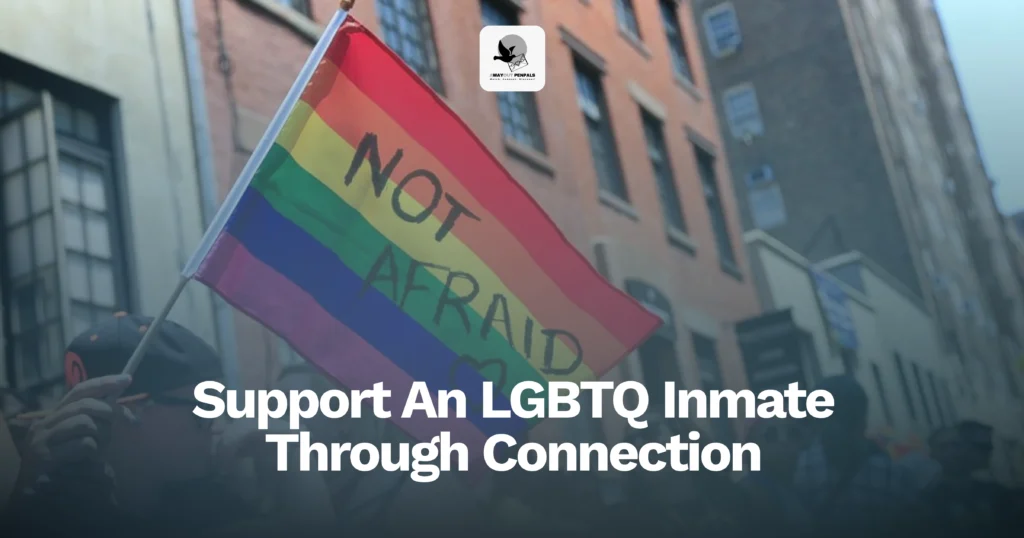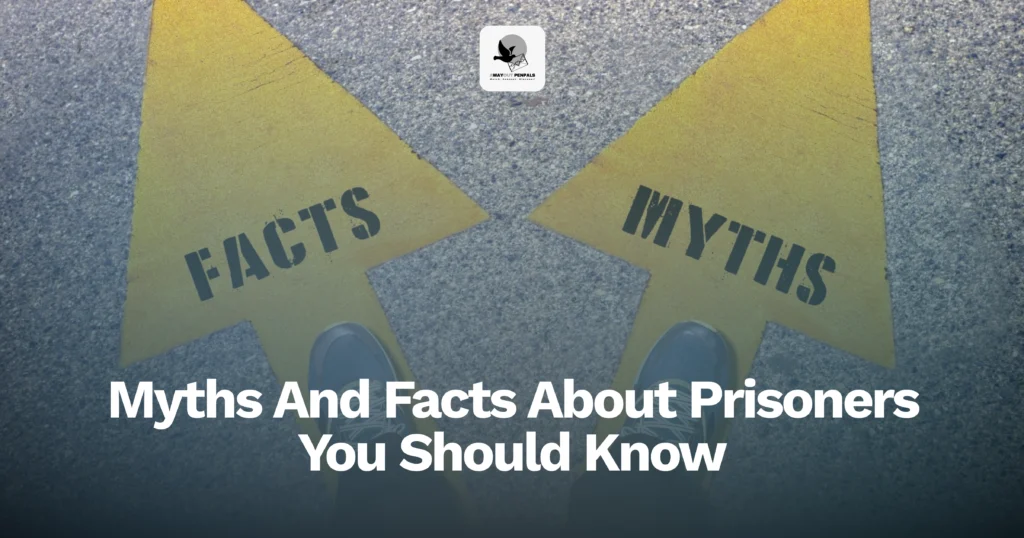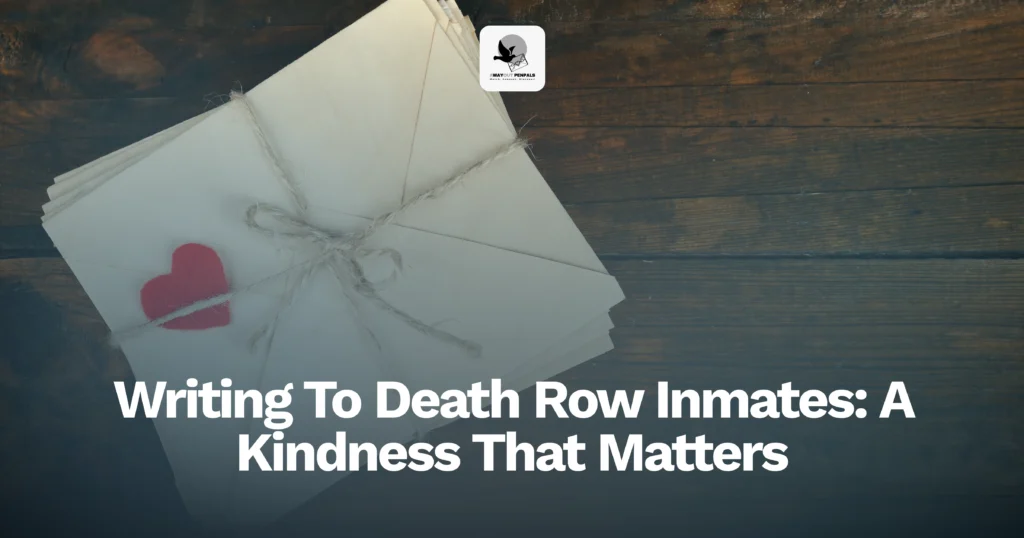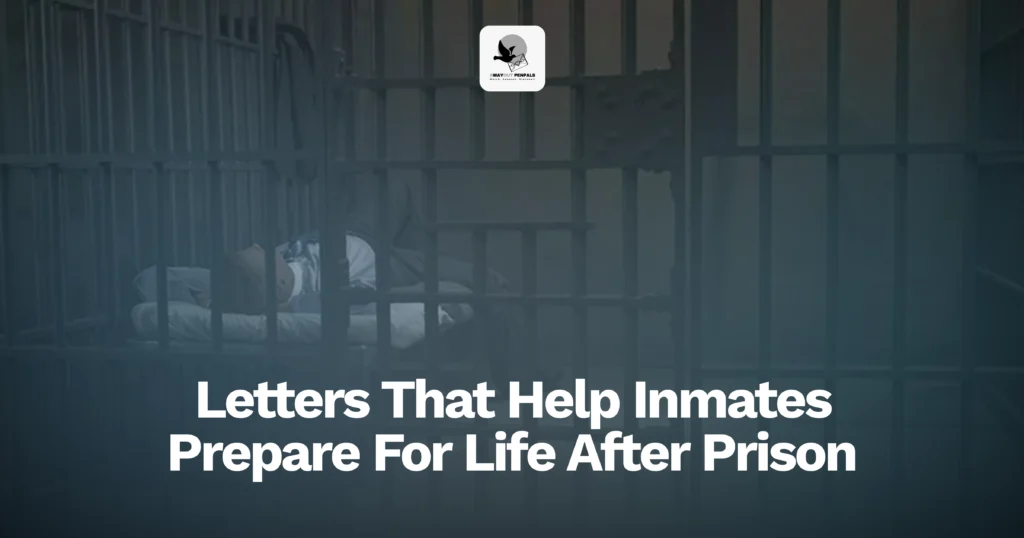Have you ever thought about the lives of LGBTQ people in prison? For many, prison is already a tough place to survive, but for LGBTQ+ prisoners, the challenges can be even greater. Isolation, discrimination, and safety concerns make daily life extremely difficult.
So, how can we help support this vulnerable community behind bars? One powerful way is through pen pal programs.
Why Focus on LGBTQ+ Prisoners?
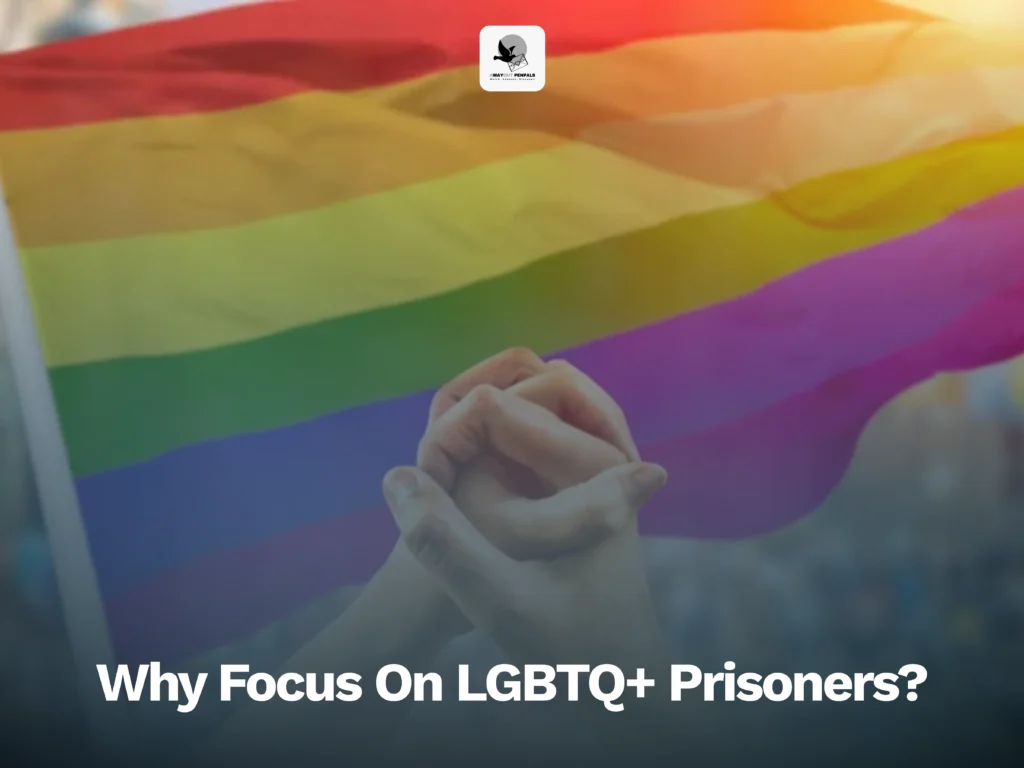
LGBTQ people in prison face unique struggles. They’re often at higher risk of violence, discrimination, and mental health issues.
Many prisons still lack proper protections and support for LGBTQ inmates, which can lead to feelings of loneliness and despair. When you think about it, isn’t connection a basic human need, no matter where someone is?
Supporting LGBTQ prisoners isn’t just about safety; it’s about dignity, respect, and giving them a voice in a system that often silences them.
What Are Pen Pal Programs?
Pen pal programs connect people inside prison with volunteers outside through letters. These aren’t just casual greetings; they provide emotional support, friendship, and hope.
For LGBTQ inmates, having someone to write to can mean the difference between feeling forgotten and feeling valued.
How Does a Way Out Pen Pal Program Help LGBTQ People in Prison?
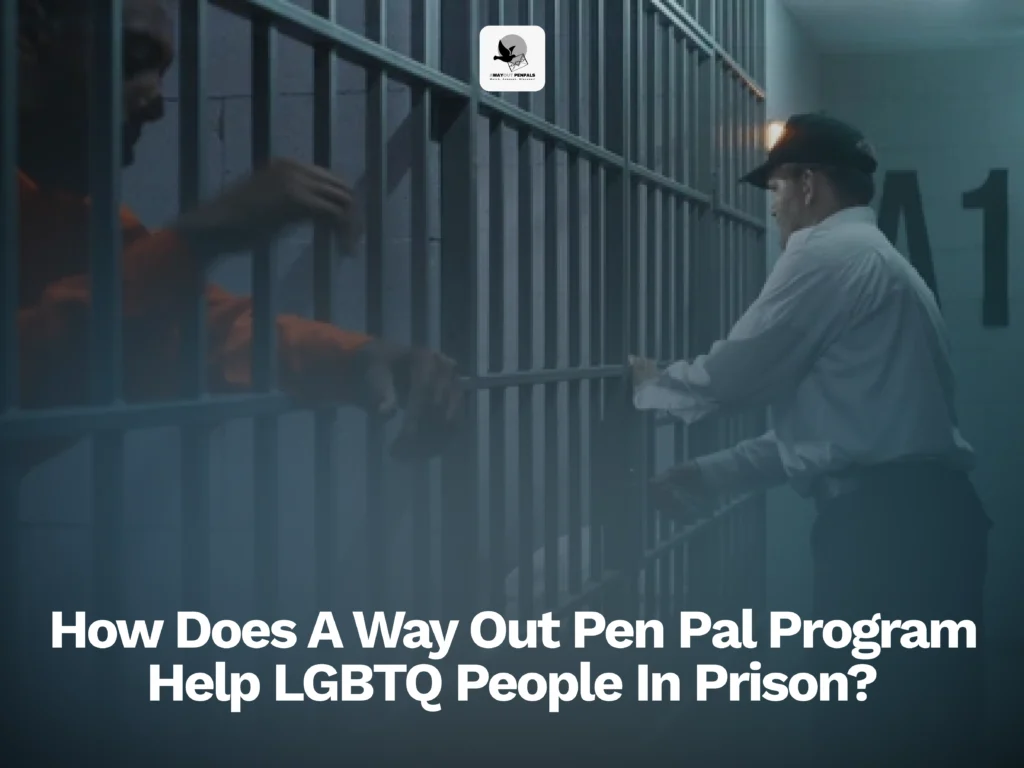
1. Combatting Isolation
Many LGBTQ prisoners experience social isolation both from other inmates and sometimes from staff. Letters from pen pals remind them that they’re not alone and someone cares.
2. Providing Emotional Support
Sharing thoughts, stories, and encouragement through letters can uplift mental health. For someone struggling with identity in a harsh environment, this connection can be life-changing.
3. Creating Safe Spaces
Pen pal programs often specifically focus on supporting LGBTQ inmates, which helps create a safe and understanding space for them to express themselves freely.
4. Raising Awareness
Pen pals become advocates. By learning firsthand about the challenges LGBTQ prisoners face, pen pals can raise awareness and push for better policies and protections.
Why Your Letters Matter So Much
You might wonder, does a single letter really make a difference?
For LGBTQ people in prison, it absolutely does.
When someone is cut off from their community, judged for who they are, or placed in solitary “for their safety,” a simple, kind letter can be the one thing that makes them feel human again.
It’s not just about words on paper; it’s about reminding someone they matter.
- You’re giving them a voice when the system silences them.
- You’re helping reduce the isolation that often leads to depression or worse.
- You’re showing up for someone who may have been abandoned by family or society.
Every time you write, you’re reminding someone: You are not forgotten.
How to Get Involved or Start a Program

Partner with Existing Organizations:
Many nonprofits already run pen pal programs for LGBTQ inmates. Partnering with them is a great way to start.
Promote Awareness:
Share stories and information on your platforms to educate others.
Create Tech Solutions:
Develop secure and accessible ways for inmates and volunteers to connect digitally.
Volunteer:
If you want to make a personal impact, consider becoming a pen pal yourself.
Final Thoughts
Supporting LGBTQ+ inmates through pen pal programs isn’t just about letters; it’s about hope, respect, and humanity. When was the last time you reached out to someone who might be feeling invisible? Could a simple letter change a life?
In a world where connection drives progress, pen pal programs for LGBTQ prisoners offer a lifeline.
FAQs
1. Why are pen pal programs important for LGBTQ people in prison?
LGBTQ prisoners often face higher rates of isolation, discrimination, and violence. Pen pal programs offer emotional support, reduce feelings of loneliness, and remind them they are not forgotten.
2. Are pen pal programs safe for both inmates and volunteers?
Yes, when run through reputable organizations, these programs are carefully structured to protect both parties. Personal information like home addresses is kept confidential, and all communication is monitored to maintain safety and boundaries.
3. Can I write to someone even if I have no experience with prison or LGBTQ issues?
Absolutely. You don’t need to be an expert; just being a kind, respectful, and consistent pen pal can make a huge difference in someone’s life. Many programs also offer guidance on how to write supportive and appropriate letters.
4. Which organizations run pen pal programs for LGBTQ prisoners?
Some well-known ones include:
- A Way Out Pen Pals: Builds friendships between LGBTQ+ prisoners and pen pals to reduce isolation and offer connection.
- Black & Pink: A national organization focused on LGBTQ+ prison abolition and support.
- ABO Comix: A collective that connects pen pals and raises awareness through art and writing.
- Bent Bars Project (UK): Supports LGBTQ+ prisoners through correspondence and advocacy.
5. How often do I need to write?
There’s no fixed rule, but most programs suggest writing at least once a month. Consistency is more important than frequency; it helps build trust and a meaningful connection.
6. Can tech companies or startups support these programs?
Yes! Startups can provide funding, help create secure communication tools, or raise awareness through content and campaigns. There’s a huge opportunity for tech to make these programs more accessible and efficient.
7. Are there any risks involved in being a pen pal?
Risks are minimal when following the guidelines set by the organization you partner with. It’s essential to maintain appropriate boundaries and refrain from sharing personal information unless the program explicitly allows it.
8. Can this really make a difference?
Yes. Many LGBTQ prisoners say their pen pals helped them feel seen, valued, and hopeful. A letter may seem small, but to someone in prison, it can mean the world.

